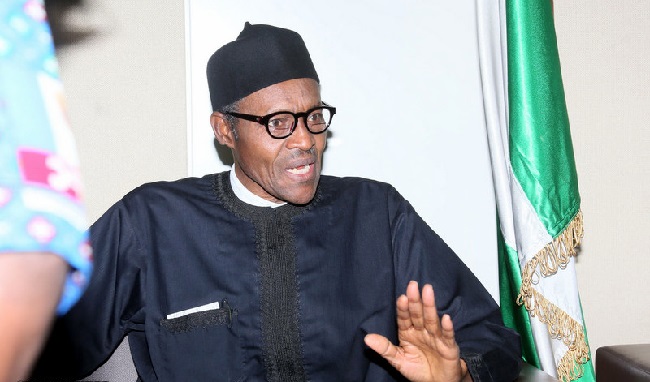Defeating the power of incumbency
While the presidential election was anticipated to be close, there were still doubts that it would be possible to unseat an incumbent president in Nigeria. So when Muhammadu Buhari of the All Progressives’ Congress (APC) was declared as winner of the election, Nigerian democracy has entered a new stage that will contribute to set the standard for coming elections in Africa; Henrik Angerbrandt writes.
It was in fact one of Goodluck Jonathan’s first decisions as incoming president that eventually paved the way for his departure. That decision was to appoint Attahiru Jega as chairman of the Independent National Electoral Commission (INEC). Jega has since led the monumental task of reforming the Nigerian electoral process in an impartial way, which, together with the weak performance of Jonathan as president and a united opposition facing a crumpling ruling party, has made a historical defeat of an incumbent president possible.
INEC made it harder to rig elections
INEC was up until Jega’s appointment a central actor in providing favourable election results for the ruling party. The 2007 Nigerian presidential election was one of the most corrupt elections ever seen. Even the winning president, Umaru Yar’Adua, had to concede that the election had been marred by irregularities.
Jega has introduced a thorough reform of the election process. One example is the introduction of biometric Permanent Voter Cards and electronic card readers for identifying voters, which was fiercely contested by an increasingly distressed ruling party who saw the possible avenues for rigging diminishing. New strategies for steering the election result were however developed. The military came to play a conspicuous role in this endeavour. The election was initially scheduled for 14 February but when it became apparent that the opposition was likely to win, the military declared they could not provide security during the elections at that time. This was disclosed a mere week and a half before the elections were to take place. The reason given was that the troops were needed in the fight against Boko Haram.
The weak performance of Jonathan
Jonathan lost support in most parts of the country and especially in the south-western and north-central parts. The lackadaisical attitude to the Boko Haram insurgency that has beset northern Nigeria during Jonathan’s tenure has made both Nigerians and international observers question the ability of Jonathan to tackle the insurgency. Jonathan’s record has further been weakened by widespread poverty and endemic corruption that he has been unable to address. Africa’s biggest oil producer and its largest economy has 60 percent of the population living below the poverty line of 1.25 dollars a day at the same time as the national lawmakers are assessed to be the highest paid in the world with approximately 1.5 million dollars a year.
A strong opposition coalition
In 2013, the four major opposition parties came together to form the APC in an attempt to challenge the ruling PDP and president Jonathan. PDP has ruled Nigeria since the transition to democracy in 1999 and become more or less synonymous with the Nigerian state, controlling not only the military and police but also the judiciary. While the opposition managed to unite the PDP has at the same time been weakened by a series of internal rifts under Jonathan, initially originating in Jonathan’s decision to challenge a “gentlemen’s agreement” among the political elite which stated that the presidency should rotate between different parts of the country. This would have implied a candidate from the north while Jonathan is from Bayelsa State in the south.
A new setting for Nigeria
The country has been at a cross-road with implications for the region and the international community. Challenges have included losing territory to Boko Haram, postponed elections and falling oil prices. Despite fears that the elections would plunge Nigeria into turmoil and violence, the electoral process ended up in reinvigorating the nation. The way in which the Nigerian presidential election was carried through have strengthened democracy considerably in Africa’s most populous country, contributing on a positive note for the future development not only in Nigeria, but in the region as a whole. This has been further accentuated by Jonathan’s decision to congratulate Buhari to the victory and concede defeat, which is unprecedented in Nigerian politics. The norm for defeated candidates is to go to court to challenge the result.
Nigeria will for the first time in its history have a president with a popular mandate. Nigerian voters turned out in large numbers despite the security threats that surrounded the election. And despite logistic problems that made the election a two-day exercise they were patient and determined to have their votes counted. Even in places where a curfew was imposed, as Bauchi State, voters stayed put at the polling units to make sure that the result would reflect the voting. This means that Buhari is now accountable to the voters in a way Nigerian presidents have never been before. Citizens expect “change”, which has been the APC slogan, with the fight against insecurity and corruption as top priorities. Buhari is now also aware that a second term is not guaranteed. How this will affect Nigerian politics will be the chapter to follow. But before that there will be elections in 26 out of the 36 states on 11 April. In front of that, the PDP will need to recover from the presidential defeat and present new alternatives. Otherwise there is a risk that the party will disintegrate completely.
Henrik Angerbrandt is PhD Candidate in Political Science and researcher at the Nordic Africa Institute. His research concerns ethno-religious conflict in northern Nigeria


